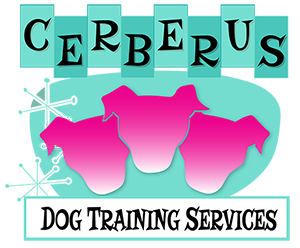November 28, 2022
Is Dog Behavior Really “All About How They’re Raised”? (Spoiler Alert: No.)

Nature vs. Nurture. Which force wins when it comes to a dog’s personality and behavior? The answer is neither. Training and experiences, environment, genetics and the individual dog are all equally important factors in overall behavior. We must always take the whole dog into account – from genetics to all his life experiences – when discussing behavioral outcomes.
Let’s discuss artificial selection for specific traits through breeding. For example, herding dogs like Australian Shepherds were bred for a specific job which required specific modified behavior. Humans artificially selected against the kill-bite-consume sequence (obviously- those behaviors would be unhelpful and unsafe to the animals he is herding -ouch). The herding behavior was selected for. Additionally, ritualized aggression was selected for.* Ritualized aggression is the threatening display that warns off a predator. This is how herding dogs guard their charges. They were also bred for an ability to cooperate with human partners and families.
In the present day, Aussies often end up in a family home with no job to do, as most people do not have sheep or other livestock to care for (as much as we might wish we did…I am talking about myself). Depending on the line the dog descended from, his own personal makeup, his environment, his individual experiences and training or lack thereof, many behavior outcomes are possible. To be clear, breed does NOT predict behavior. However, genetics, experience/learning, and environment ALL come into play when a dog’s personality and behavior are concerned. So back to our suburban Aussie. Let’s say he comes from a long line of working dogs, but now he’s in a home with small children, busy parents, a fenced yard, and no job. He is trained and understands basic obedience cues. He is loved and cared for emotionally and medically. But he has no outlet for his natural instincts. Pretty soon, he is getting into trouble for misplaced ritualized aggression toward guests, potentially herding the kids all over the house, and talking back to his owners. This dog is intelligent and healthy, but some basic instincts cannot be “trained away”. Without proper management and opportunities to express his hardwired instincts, this dog will be set up for chronic frustration and an unhappy time. Can he live a happy life? Yes, but only if all his needs are being consistently and purposefully met. Again, breed does not predict behavior and not all Aussies need to live on a farm or be gainfully employed. But lineage and genetics should be considered along with environment and social history in order to set him up for success in the home.
Another major factor in behavior is the critical socialization period. This is the time up to 14 – 16 weeks of age when a puppy is gaining new experiences. This is the time that makes or breaks a dog. For example, if a dog is weened from the mother too soon and taken away from her and the littermates, (my Tiramisu is an example of this), there will be lifelong consequences. Dogs removed from their mother too soon tend to have lifelong issues with any of the following: anxiety, inability to focus, separation anxiety, over-excitement, and aggression or lack of bite inhibition. Even if the puppy stays with mom for the correct period of time, but then has no appropriate socialization during the critical period, or has negative experiences during this time, there is no amount of training afterward that can completely make up for these deficits. Of course, positive reinforcement training can greatly improve and help manage behavior issues, but this is where nurture weighs heavily on the behavior outcome of a dog. Back to my Tiramisu. She was taken from her mother and littermates at 4 weeks of age. She had a whole host of nasty bad luck before I got her at 8 weeks old. She is a wonderful, loving, affectionate, smart dog. But her nickname is FOMO (Fear of Missing Out) because she is always very excited, looking for what’s coming next. She had terrible separation anxiety for a very long time. She either gets hyper focused on toys or can’t focus on anything at all. Life is a training exercise for her. And while she is ridiculously happy (and madly in love with our Starla), no amount of training will make some of her quirks go away. But we can manage them and help her live happily and comfortably.
Ok Lisa, thanks for all the words what is your point?
I’m glad you asked.
The point is that we all need to be aware of what makes a dog a dog, what our responsibility is in the mix, and what dog is right for our family and lifestyle. We need to have reasonable, educated expectations for dogs. Every dog has an individual personality and limitations which must be respected. Taking in a dog because she is cute is a natural human thing to want to do. But a better way to go about choosing a dog for your home is to spend some time with her, try to find out as much as you can from the shelter you’re adopting from or from the breeder you are purchasing from- and be honest with yourself about your own lifestyle and limitations. Are you a good match? Really? Be sure you are setting each other up for success.
I’d love to hear your thoughts or questions on this subject! Email info@cerberusdogtraining.com to chat!
*Ethological Contributions to Aggression in Dogs by Kium Brophy CDBC

